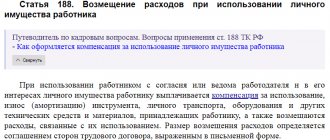Official website of the Supreme Court of the Russian Federation
Modern types of fraud can raise many questions from courts that hear criminal cases. Is it fraud or theft to pay with someone else's credit card in a store? What if you withdraw money from an ATM or use the card together with a stolen envelope with a PIN code? What does welfare fraud look like and what subsidies do not apply to them? What are the features of non-cash theft? And why is stealing money through fake charity sites not classified as computer fraud? These and other questions were answered by the Plenum of the Supreme Court in a resolution adopted on November 30, 2017.
1. Fraud – theft by deception or breach of trust. What is deception and breach of trust?
Deception is knowingly communicating or presenting false information, or suppressing true facts, or deliberately acting to deceive. The latter, for example, include the transfer of counterfeit goods, imitation of using a cash register, deceptive techniques in gambling, etc. And false information can concern anything: legal facts and events, the quality and value of property, the identity of the deceiver, his capabilities and intentions.
Abuse of trust is its use for personal gain. Trust can be explained by personal or professional relationships. Anyone who receives money or property under an agreement, but does not intend to fulfill it, also abuses trust. For example, a person received a bank loan or an advance for work or services.
2. When is the fraud complete?
At the moment when the criminal or other people took possession of the property and received a real opportunity to use and dispose of it.
If a fraudster has acquired the right to someone else’s property (for example, he has convinced him to register real estate or a security), the crime is considered completed from the moment of registration or another decision of the authorized body.
3. What features does theft of non-cash money have?
They are exactly the same object of encroachment as cash, but with some legal differences. In the case of theft of non-cash money, the crime is considered completed from the moment the funds are withdrawn from the owner’s bank account or electronic money, and not from the moment the criminal takes possession of them. The main thing is that the victim suffered damage, and it doesn’t matter where the electronic money went. In addition, their path is often difficult to track, as judicial practice shows.
The place where the crime ended is determined by the address of the bank, its branch or other organization where the account was opened or electronic money records were kept. This will help determine which court the crime belongs to.
4. How many different types of fraud are there and why is such a division necessary?
In addition to “simple” fraud (parts 1–4 of Article 159 of the Criminal Code), there is fraud in business (parts 5–7 of Article 159 of the Criminal Code), in the field of lending (159.1), when receiving payments (159.2), using payment cards (159.3), in the field of insurance (159.5), in the field of computer information (159.6). With this conditional division, there are seven of them.
It serves to differentiate punishment depending on the social danger of the crime. For example, “simple” fraud without aggravating circumstances can result in up to two years in prison, while similar fraud involving loans or insurance payments can result in a maximum of four months in prison.
5. What is fraud in the field of lending (Article 159.1 of the Criminal Code)?
These are the actions of a borrower who, on his own behalf or on behalf of his company, provided the bank with deliberately false or unreliable information in order to receive a loan and not repay it. This incorrect information should relate to the conditions under which the bank issues a loan (for example, information about place of work, income, financial condition, presence of accounts payable, collateral).
It often happens that an entrepreneur or director of a company submits incorrect reports simply to get a loan or preferential lending conditions. At the same time, they plan to give the money to the bank. This is not a scam. But if such deception caused him major damage (2.25 million rubles), then the businessman or manager faces liability under Part 1 of Art. 176 of the Criminal Code (“Illegal receipt of a loan”).
6. What does fraud with social benefits look like (Article 159.2 of the Criminal Code)?
This is the provision of knowingly false or unreliable information to officials who assign payments in order to receive money. For example, incorrect information about the recipient’s identity, disability, presence of children or dependents, participation in hostilities, or inability to get a job.
Silence can also be called a crime in the case when a person has lost the right to payments (for example, he was given a different disability group), but continued to receive them.
Anyone who received a certificate or other document by deception, but was unable to “cash it in” due to objective circumstances, should be tried for preparation for fraud. In this case, it is necessary to prove the intent to commit a crime.
Social payments do not include grants, scholarships in support of science, education, etc., agricultural subsidies and payments in support of small and medium-sized businesses. Fraud in obtaining them is classified as “simple” under Art. 159 of the Criminal Code.
7. What distinguishes fraud in business activities (parts 5–7 of Article 159 of the Criminal Code of the Russian Federation)?
Here, the violator is an individual entrepreneur or a member of the board of a commercial organization who deliberately fails to fulfill obligations under a business agreement. For example, such a crime can be called raising money under the guise of investment.
Here, direct intent to steal someone else's property is required, which arose in the criminal before he received it. The minimum damage for a crime is 10,000 rubles.
8. What is credit card fraud (Article 159.3 of the Criminal Code)?
This is the theft of money using a counterfeit or someone else's payment card - credit, debit, etc. To pay with its help, the fraudster tells the cashier or another employee that this card belongs to him, or simply keeps silent that the card is someone else’s.
If a criminal pays with someone else's card at an ATM or uses a card together with stolen PIN codes or passwords, this is considered theft, not fraud.
9. What does insurance fraud look like (Article 159.5 of the Criminal Code)?
In this case, the fraudster can deceive about the occurrence of an insured event - for example, he fakes an accident, an accident, or theft of the insured property. Another type of crime is overestimating the amount of insurance compensation for an event.
The criminal may be the policyholder, the insured person, another beneficiary, as well as a representative of the insurer who entered into a conspiracy, or an expert.
10. What is meant by fraud in the field of computer information (Article 159.6 of the Criminal Code)?
Its mandatory feature is targeted interference in the operation of programs and databases, which disrupts the processing, storage, and transmission of computer information. An example is a virus that collects credit card data used by users to pay for purchases on the Internet.
If the criminal used the victim’s phone with a “mobile bank” or logged into the payment system under someone else’s account, such receipt of money is considered theft, not fraud. Unless, of course, he interfered with the operation of computer programs. Such impacts do not include changes in account data or cash flows.
“Simple” and not “computer-based” is a type of deception known on the Internet - for example, fake websites of charitable organizations and online stores.
Author: Evgenia Efimenko
Online fraud: types
There are many ways to deceive people over the Internet.
The ingenuity of scammers knows no bounds; new techniques are constantly appearing aimed at luring money out of Internet users. It is impossible to describe all types of fraud, so below is general information about methods of deception, grouped according to similar characteristics. Existing types of fraud on the Internet can be divided into 2 large groups:
- Software. Money is written off from the user using special means: viruses, fake sites, etc.
- Psychological. The basis for fraud is the human factor: users independently transfer money to the accounts of criminals, believing in the story they set out.
Checking an online store for fraud
To avoid falling for scammers, you should choose only trusted online stores and not pay in advance for orders made through social networks or classifieds sites.
If the product is extremely necessary or the price is very attractive, you should check the online store for fraud before placing an order. To do this you can:
- Find out the domain registration date. If the site was created recently (a week or even a month ago), the likelihood that it is being used by scammers is extremely high.
- Read reviews on forums or specialized review sites. If there are no such reviews or they are negative, you should refuse the purchase. The abundance of the same type of enthusiastic responses should also alert you - most likely, they are custom-made and do not correspond to reality.
- Really evaluate the store's offer. Liquidation of a branded collection at a 90% discount from the initial cost, sale of confiscated goods, or sale of flagship models of electronic equipment at half price is most likely just a bait from scammers.
What to do if you were deceived with a parcel
I think everyone is familiar with the footage when a person opens a package with a smartphone purchased via the Internet, and there turns out to be a brick. And of course, the goods were pre-paid.
In this case, there is also fraud. Parcels with expensive contents should be opened directly at the Post Office. For the investigation, it is extremely important to obtain witnesses, who will be post office employees.
And here you also need to contact the police, write a statement and wait for a criminal case to be initiated. In such cases, fraud is often widespread; cases from different parts of Russia can be generalized.
Where to report online fraud
Despite the fact that the media and popular electronic resources constantly publish information about existing methods of deceiving the population, law enforcement agencies daily record hundreds of cases of dishonest actions against consumers of information. Where to turn in case of Internet fraud if you have encountered deception on the Internet?
First of all, the victim must submit a statement to the police department located at his place of residence. A separate division, the “K” department, has the authority to handle complaints regarding Internet fraud.
The application must indicate:
- Full name, passport details, registration address, contact phone number of the applicant;
- description of the situation that occurred: date, time, place where the fraudulent actions were committed, as well as the essence of the actions that led to the deception of the victim;
- date of application and signature of the applicant.
You can submit your application either in person or online. To do this, you need to follow the link https://mvd.ru/request_main and send the document (you can attach additional evidence of fraud to it: screenshots of pages, Internet banking receipts, etc.).
Internet fraud - how to get your money back
Unfortunately, it is almost impossible to recover money lost as a result of fraudulent activities on the Internet. Most often, scammers have minimal computer and legal literacy skills and accept money not to a bank card, but to an account that does not require identification confirmation (for example, to a wallet opened in the Payeer system), which complicates the procedure for finding them.
It will also not be possible to contact the scammer on your own and appeal to his conscience. Usually the telephone numbers indicated in the advertisements do not answer, and the copies of documents and information about the registration address provided are fake.
Contacting law enforcement agencies may give you a slim chance of getting your money back. How to do this is described below.
Comments: 2
Your comment (question) If you have questions about this article, you can tell us. Our team consists of only experienced experts and specialists with specialized education. We will try to help you in this topic:
Author of the article Irina Rusanova
Consultant, author Popovich Anna
Financial author Olga Pikhotskaya
- Andrey Seleverstov
10/31/2021 at 4:45 pm How to get a Yumani card without personal identification?
Reply ↓ Olga Pikhotskaya
10/31/2021 at 17:22Andrey, good afternoon. You can issue a virtual card to an anonymous wallet. It has a common balance with the YuMoney wallet, it is issued free of charge in 3 seconds and is immediately ready for use. You can issue a card in your personal account - section “Cards” - “Issue a card”.
Reply ↓
Punishment for online fraud
Responsibility for fraud (including fraud on the Internet) is provided for in Art. 159 of the Criminal Code of the Russian Federation. The sanction of this article establishes the following types of punishment:
- a fine of up to 120 thousand rubles;
- a fine in the amount of the salary or other income of the convicted person received by him for a period not exceeding one year;
- compulsory work lasting up to 360 hours;
- correctional labor for up to 1 year;
- restriction of freedom/forced labor for up to 2 years;
- arrest for up to 4 months;
- imprisonment for up to 2 years.
Thus, the punishment for fraud on the Internet is not severe enough, even taking into account the legislator’s differentiated approach to its possible types.





